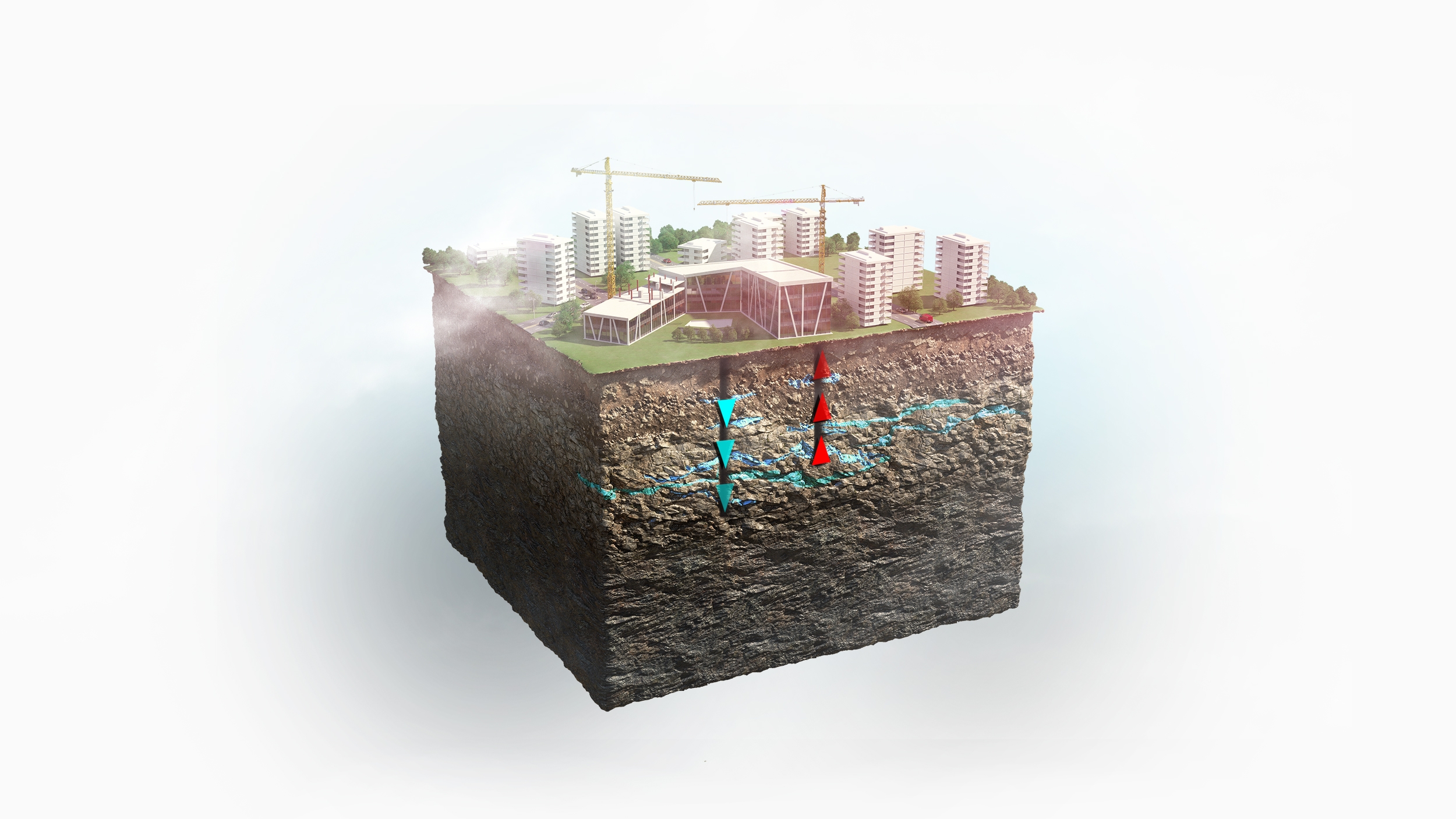Traditional geothermal systems require extensive drilling and large well fields, making them costly and resource-intensive. Ruden offers a better way.
Our Low Enthalpy Aquifer Technology (LEAT) uses natural fracture systems in the bedrock to create efficient open-loop systems that deliver the same heating and cooling from just 10 wells — compared to around 100 in a conventional setup.
For areas where open-loop solutions aren’t ideal, Ruden designs closed-loop borehole systems that can be installed almost anywhere. Both options provide reliable, low-carbon energy for large commercial buildings, housing developments, and infrastructure such as train stations and airports.
With deep hydrogeological expertise and advanced modeling tools, Ruden turns underground potential into clean, cost-effective energy.
Geoenergy systems can be established in virtually any geological setting — whether the subsurface consists of sand, clay, solid bedrock, fractured formations, or even complex karst systems. However, the geological environment determines how energy can be most efficiently and sustainably extracted.
At Ruden AS, every geoenergy project begins with a comprehensive pre-study of the local geological and hydrogeological conditions. This investigation includes mapping the subsurface layers, assessing groundwater flow, temperature, and quality, and identifying potential technical or environmental risks. By understanding how water and heat move underground, Ruden can design an energy system tailored to the site’s natural characteristics.
Based on these findings, Ruden’s experts determine the optimal groundwater-based solution—whether it involves open-loop systems (using groundwater directly for heat exchange) or closed-loop systems (using collector wells or borehole heat exchangers). This ensures maximum energy efficiency, long-term operational stability, and minimal environmental impact.
Throughout the process—from site characterization and pilot well testing to system design, installation oversight, and performance monitoring—Ruden applies its deep hydrogeological expertise to transform subsurface knowledge into reliable and renewable energy solutions.
Ruden Energy has installed geothermal heating and cooling for several signature projects in and around Oslo, including Wesselkvartalet, Asker Panorama and Økern Portal. Country-wide, we have reference projects in Tromsø, Røros and Bergen.
